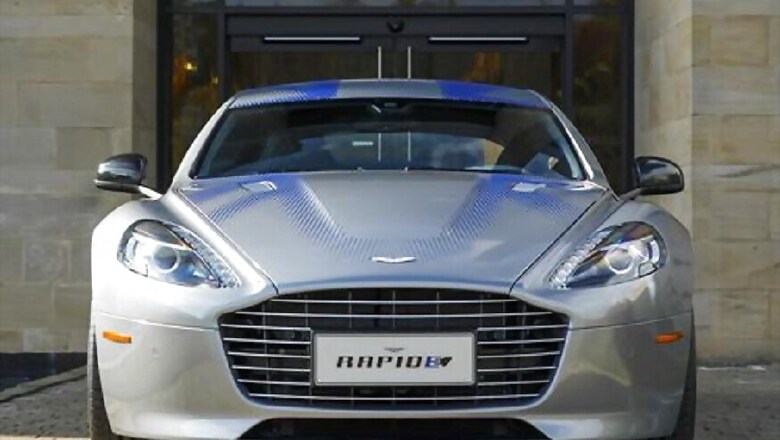
views
Makers of supercars and hypercars don't like to be outdone by a rival, so Elon Musk's claim that Tesla's new roadster will be the fastest accelerating car in the world has obviously caused something of a stir. Aston Martin appears to be considering its own all-electric supercar to take on the next-generation Tesla Roadster, but as part of a wider push towards the electrification of its portfolio.
Aston Martin's CEO, Andy Palmer, was recently quizzed by Auto Express about the possibility of his company going head-to-head with Tesla in the future. When pushed about whether the British brand would consider an all-electric, lightweight supercar smaller than the current Vantage, Palmer admitted, "It's possible, yes. There are various challenges involved in making an EV, and the one everyone focuses on is the battery – the management system and the chemistry involved."
Palmer added, "The interesting thing is that the other three key components of any electric car – weight, aerodynamic drag and rolling resistance – are areas sports car manufacturers, and us in particular, are really good at mastering."
The company has something of a head start when it comes to producing a lightweight all-electric roadster, and that's because it's already adopted the kind of aluminum-intensive platform needed for such a car with the current DB11 and Vantage models. Having such a platform in place could cut down considerably on development costs through component sharing, which is another reason why Aston is considering such a move.
It's already been revealed by Aston Martin that it will be offering 155 units of its RapidE all-electric car next year. But that's just the beginning of the company's electrification plans as it's also committed to having at least a mild-hybrid version of every model available by 2025.
Unfortunately, there's not much chance of a Tesla Roadster-fighter from Aston until the early part of the next decade as the company already has ambitious plans in place to launch a brand new model ever year right through until 2022.
Although electrification is a big part of the British manufacturer's plans going forward, 48v hybrid technology will be employed before full electrification comes in, so there won't be any plug-in hybrids. Palmer said, "We won't offer plug-in hybrids. I don't see the point."
Also Watch: Kevin Flynn, President & MD, FCA India | Interview

















Comments
0 comment